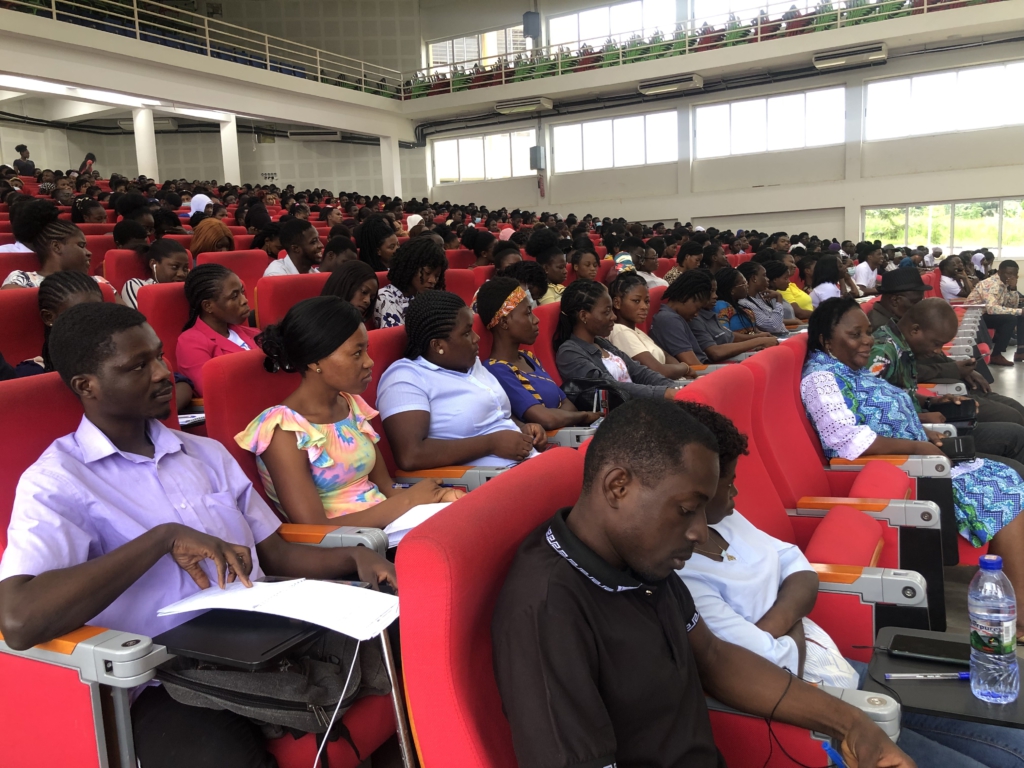
Eight hundred and forty-three scholars of the Mastercard Foundation Program at the Kwame Nkrumah University of Science and Technology (KNUST) are benefiting from practical short courses.
The training will build the capacity of beneficiaries with multidisciplinary knowledge relevant to the corporate world.
Beneficiaries from across Africa studying at KNUST were provided with the opportunity to get insight into other fields of study.
The 4-day training is facilitated by the KNUST Centre for Capacity Building and Innovation (CCBI) yearly.
The coordinator of the CCBI, Dr. Yaw Amo Sarpong believes the program will build the capacity of students to serve their respective societies.
“They are 843 in all and will be grouped into plenaries where they can attend courses of interest. We run these programs for the students because, we have to build capacity across all fields. If you look at the students here, all of them will be writing a thesis. After school, you might find yourself in an area of work that is not your traditional area of work.
“If these students come out and are understanding and well knowledgeable in areas outside their field of study, they can be able to fit into society and fit into their work schedules,” he stated.
He added that: “We are looking at areas of research methodology, and systematic review, there is an introduction to participatory planning, monitoring, and evaluation, and we are also looking at occupational health and safety courses, proposals, and research grant writing.
“I participated in the core courses where we treated research methods and during the breakout, I participated in proposal and grant writing. I think it is helping me because I have applied for funds and await to get positive results.
“I want to be an entrepreneur, and as such, I have to be used to proposal and grant writing. So far so good. I now understand when I need to write proposals to NGOs, the government, and stakeholders in our community.
“As an entrepreneur, I have to engage the community, know what they want, and know what to provide them. I anticipate very positive feedback as reflected last year,” said Fauziatu Mohammed, a final year Food Science and Technology student.
Kasim Chiekha, a level 400 student in Marketing, explained how the program over the years has impacted his life.
“Just recently together with friends, we undertook a bush burning project in the Sisala East District. We educated local people on the negative sides. I think our ability to successfully enter the community and undertake the project was part of the training I got from the training.
“This year, I will be taking project management as my short course. Project management is an area in high demand. In the end, I am hoping that I would be given the prerequisite skills to make an impact in my community,” he explained.